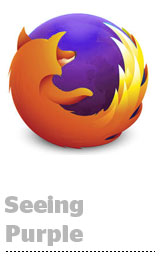 Here’s today’s AdExchanger.com news round-up… Want it by email? Sign-up here.
Here’s today’s AdExchanger.com news round-up… Want it by email? Sign-up here.
Yahoo Search On Fire(fox)
Late on Wednesday, Firefox struck a deal to make Yahoo its exclusive and default search engine, after a 10-year-long relationship with Google. In a statement, Yahoo chief Marissa Mayer called the deal “the most significant partnership for Yahoo in five years,” adding that it “helps to expand our reach in search and gives us an opportunity to work even more closely with Mozilla to find ways to innovate in search, communications, and digital content.” A notable condition of the deal was that Yahoo agreed to Mozilla’s “do not track” feature, that lets users opt out of cookie tracking. But what’s Yahoo scheming to do will all that search data? The NYT has more.
Ad Serving By Bezos
The Washington Post built its own ad server for its Amazon Tablet app, Ad Age reports, and Lincoln and Sprint are the first sponsors to test it. “Advertising was at the development table at the very beginning,” said Jeff Burkett, the Post’s senior director of sales operations and product strategy. “It was a first-class citizen.” The Jeff Bezos-owned paper’s chief technology officer, Shailesh Prakash, said the publisher shopped around for several third-party ad servers before deciding to build its own, a project that took months. According to Prakash, the Post plans to eventually incorporate content-based native ads in the Post app for Amazon Tablet.
Google’s Confusing Ad Blocker Ploy
In a surprising push into crowdfunding, Google piloted an experimental offering that helps publishers make money by blocking advertisements. Google dubbed the service Contributor, and for now it’s invite-only, but early partners include The Onion, Mashable, Imgur, and Urban Dictionary. Web users who sign up choose a monthly contribution fee of between $1 and $3. “When you visit a participating website, part of your contribution goes to the creators of that site,” Google explained in a blogpost. “As a reminder of your support, you’ll see a thank you message – often accompanied by a pixel pattern – where you might normally see an ad.”
Publicis’ Promise
During a conference in Barcelona run by Morgan Stanley, Publicis Groupe CEO Maurice Lévy expressed severe dissatisfaction with the holding company’s recent performance. “We are not delivering the kind of growth we are used to and not what we should do,” said a displeased Lévy. To turn the tide, he said the company will pump the brakes on any major acquisitions in the near future and concentrate on driving sales. “The focus is to fix the organic growth of Publicis, integrate Sapient, and to make sure it is generally the kind of growth that the market is expecting from us,” Levy added. Read on via Bloomberg.
‘Real World’ Location
Location analytics firm Placed released a ranking of the “most popular businesses in the US based on visitation.” The list, “Placed 100,” measures foot traffic, real-world store visits, and offline behavior based on data pulled from a location panel of about half a million smartphone users who have opted to be tracked. The report ranked Walmart and McDonald’s as the two most visited businesses in America. Others in the top 10 include Walgreens, Target and CVS. Although Placed previously issued similar rankings (AdExchanger coverage), they weren’t available for public consumption. More in MarketingLand.
You’re Hired!
- Tapad Opens Minneapolis Office, Names Jay Hultgren Director Of Sales – press release
- Publicis Groupe’s Level Studios Has A New CEO – Agency Spy
But Wait. There’s More!
- comScore Rolls Out Tagging Partner Program For vCE Mobile – press release
- Celtra Launches Interscroller In US, Expands Ad Format To Desktop – press release
- Survey: 56% Want To Use Mobile Pay When Shopping This Holiday Season – Retale
- The NY Times Runs Its First Print Native Ad – Digiday
- Flywheel Gets $12 Million In Series C Funding And A New CEO – TechCrunch
- Chief Digital Officers Are Changing The Way Businesses Think About Data – Forbes
- Nexage Ups ‘Nexage Connect’ Data Hub With 4 Partnerships – MediaPost
- Forbes Taps adMarketplace for Exclusive Paid Search Partnership – press release











